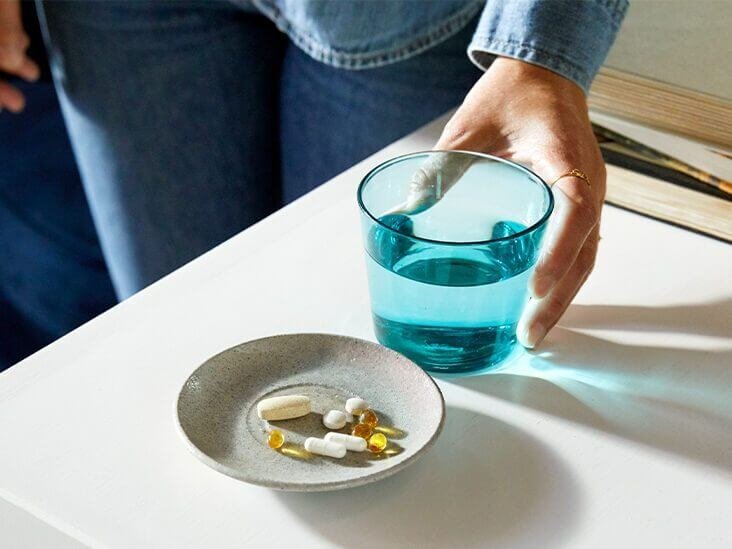This antibiotic is being used to treat many different types of pathogenic bacteria, especially acne-causing illnesses. This drug can also be used to keep malaria at bay. A tetracycline doxycycline is what this drug is called. It acts by inhibiting germs from growing. This medication is solely used to treat infections caused by bacteria.
What to eat with Doxycycline? While you should be fine to eat most foods and drink most fluids on this medication, certain things can cause issue. Be careful when ingesting dairy products, iron and calcium rich foods, and like any antibiotic medication alcohol should be avoided entirely.

Drug interactions can vary, so if you have any concerns don’t be afraid to contact healthcare providers. Eye infections and bacterial infections can be quite nasty, but its important you take care with Doxycycline as a mis-managed diet can affect the bioavailability of Doxycycline.
Interactions with Doxycycline can leave it ineffective, not only making your bacterial based infections worse, but can give the bacteria of your bacterial infections an immunity. Any healthcare professional will tell you this is bad, leading to increased doses of Doxycycline or the need for a new drug entirely.
What is Doxycycline?
Chest infections, dental infections, intestinal infections, lymphatic infections, respiratory infections, skin infections, and urinary tract infections. Doxycycline is a relaible antibiotic treatment for all of these, and is a go to widely used antibiotic for healthcare providers.
Doxcycline should be used as a short term treatment for more minor bacterial infections, but can be used long term to treat serious infections such as pneumonia and tuberculosis. Still, if you suffer a more severe bacterial infection then ask your doctor for support.
However, Doxycycline is only ideal for bacterial infections, and not for viral infections. Antibiotic medication is not suitable for the treatment of viruses, and will lead to bacteria in your body developing immunities to the drug, making future infections much more severe. It can also reduce the effectiveness of the Cholera vaccine, and attenuated Typhoid vaccine.
All brands of Doxycycline will have similar side effects. These can include diarrhea. A standard Doxycycline dose can still be influenced by the food and fluids you consume. Certain herbal treatments, hair loss treatments, and foods interactions can reduce the bioavailability of Doxycycline.
Is Doxycycline Safe?

While there are a few different opinions, most researchers agree that doxycycline is generally safe, recommended for everyone between the ages of six months and 65 in the US, and very effective at treating a number of different infections.
Taking doxycycline may be a staple prescription for many people who encounter sinusitis, skin infections and other similar illnesses. It is also considered to be a relatively fast acting drug, if you’re looking for quick relief from a seriously bad infection.
How to Take Prescription Doxycycline
Doxycycline should be ingested orally, with plenty of fluids. If you need an injection of the drug into your vein, contact your healthcare provider for assistance. Outpatient antibiotic prescriptions are, however, up to you to monitor and take care of.

Although Doxycycline can make certain vaccines less effective, you can still get a bacterial vaccine. These vaccines are live, and you may feel unwell. You should wait two full weeks after the last doasge of prescription medications before you get a bacterial vaccine for Cholera, and other diseases.
Dairy and Doxycycline

Of the potentially dangerous interactions you may be imagining, dairy is not one of them. Dairy products tend to reduce the effectiveness of Doxycycline prescription acne medication. Consumption of dairy can still be done with Doxycycline, however it should be avoided for two hours prior to the usage of Doxycycline.
Common dairy products to avoid within these two hours of Doxycycline include the obvious candidates, such as milk or cream in your coffee. However, yoghurt, cheese, and butter will all still count. It is calcium in dairy reactions that reduce Doxycycline efficacy.
The influence of milk and the calcium in any milk drink lead to the formation of calcium substances in your intestine. As this is where Doxycycline will be absorbed, the calcium will make it harder to absorb Doxycycline according to various peer reviewed studies.
Alcohol Intake with Antibiotics
The safety of drinking alcohol during treatment can be considered one of many dangerous interactions. Although a reduced effectiveness is one of the potential interactions, much like in drinking dairy, it still isn’t advised to drink alcohol while on a course of antibiotics.
You may experience an adverse effect, making you more ill and making your immune system deficient. As such, it is always reccomended that you abstain from alcohol intake by healthcare professionals, as it can make your infection much worse.

Iron Rich Foods
Certain types of food may also trigger your Doxycycline into becoming less effective. Much like the influence of milk, iron and calcium rich foods can drastically alter outpatient antibiotic prescriptions. Over the counter medications may also contain these precious nutrients.
Be careful when buying treatments, such as anticonvulsant medications, from a local pharmacy. These over the counter medications, as previously stated, can have adverse effects on your drug regiment. Iron, similarly to calcium, restricts the absorbing of Doxycycline in the intestine.
Supplements to Avoid
Calcium supplements and iron supplements should naturally be avoided where possible. Iron supplements are perhaps the more common of the two, especially for those suffering low blood iron counts with disorders such as anaemia.
Herbal supplements and skin supplements, can restrict Doxycycline absorbtion, but also have severe side effects in those trying to get pregnant. The combination of different chemicals common in these drug supplements can affacet your fertility negatively.

